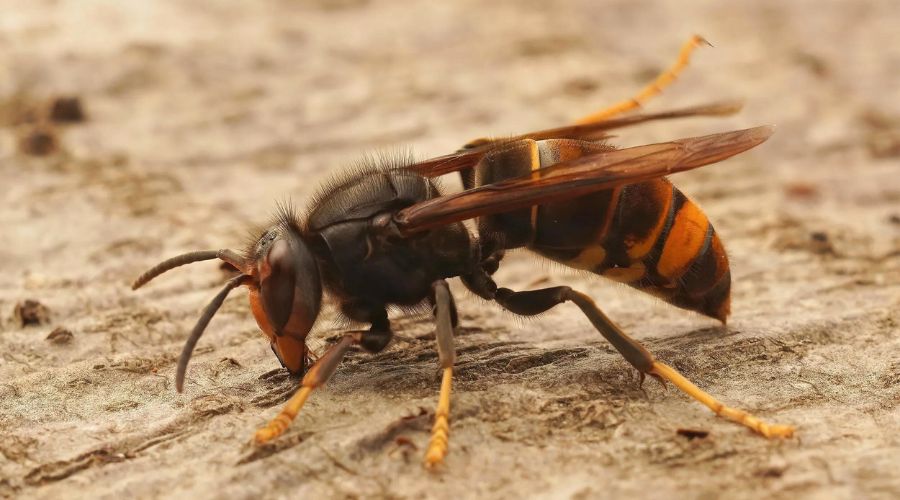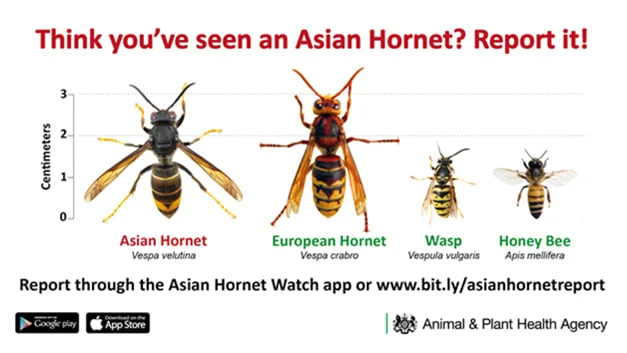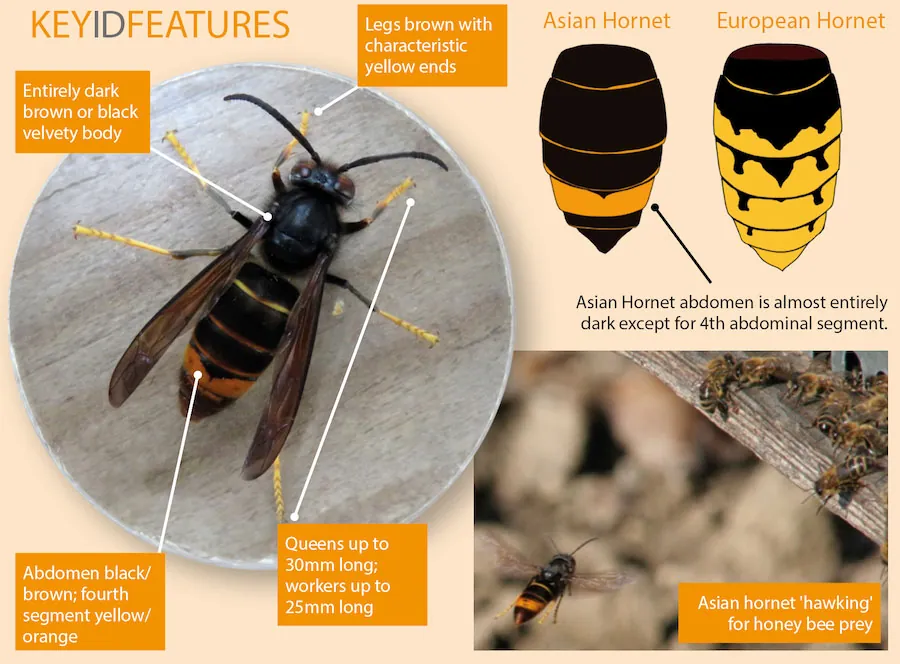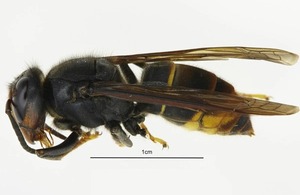Public warned to be ‘increasingly vigilant’ and report Asian hornet sightings
20th May 2024
The public and UK beekeepers have been warned to keep watch and report any sightings of Asian hornets this summer.

The Asian hornet poses no greater risk to human health than our native wasps and hornets. However, they can harm honeybees and insect pollinators.
This is why the UK’s chief plant health officer Nicola Spence, issued the warning today, 20th May.
Quick and effective response
The warning comes after 2023 saw a record number of Asian hornets found in the UK.
The Animal and Plant Health Agency’s National Bee Unit attended every credible sighting, locating and destroying 72 nests in 56 locations, with the majority of nests found in Kent.
The National Bee Unit continues to stand ready to respond quickly and effectively to any further possible sightings.

The organisation has also been taking action to eradicate the Asian hornet in the UK, and this spring it rolled out trapping in areas where there was an increased risk that Asian hornet queens may have overwintered.
The traps, which have the means to allow non-target invertebrates to escape, have been set at locations across Kent, East Sussex, Devon and North Yorkshire.
Asian hornets are not yet established in the UK. Early trapping is a key part of our surveillance for this invasive species and fundamental to our eradication efforts.
Serious situation
At the beginning of the year, the British Beekeepers’ Association (BBKA) also issued a warning for vintners and fruit growers about the detrimental impact Asian hornets would have on agriculture if they became established in the UK.
BBKA chair, Diane Drinkwater, said: “I cannot overstate the seriousness of the situation. Asian hornets are apex predators and decimate pollinators, leaving ecological destruction in their wake. They also feed on ripe fruit – spoiling crops and increasing the risk of harm to pickers.
“We must learn from what’s happening in those European countries where these non-native insects have colonised. If they become established here, the insect population will be reduced, and there will be a severe and ever-growing impact on pollination and the quality of our food crops.”
What do Asian hornets look like?
Asian hornets are distinctive and can be identified by their very dark body, wide orange stripe on the fourth abdomen section and yellow leg ends.
They are much larger in size than our native hornets. However, yellow-legged Asian hornets are smaller than European hornets.
The average for Asian hornet workers is 25mm as opposed to 30mm for European hornet.
Any sightings can be made via the Asian Hornet Watch App.

Swift and effective action
Defra’s chief plant and bee health officer, Nicola Spence, said: “By ensuring we are alerted to possible sightings as early as possible, the public can help us take swift and effective action to stamp out the threat posed by Asian hornets.
“While the Asian hornet poses no greater risk to human health than other wasps or hornets, they can damage honeybee colonies and harm other pollinators.
“Please continue to be vigilant for any Asian hornets, and if you think you’ve spotted one, report your sighting through the Asian hornet app or online.”
How to report sightings

If you suspect you have seen an Asian hornet you should report it using the iPhone and Android app ‘Asian Hornet Watch’ or by using Defra’s online report form.
Alternatively, email alertnonnative@ceh.ac.uk. Please include a photograph if you can safely obtain one.
Identification guides and more information are available and if you keep bees you should keep up to date with the latest situation on the gov.uk sightings page and on BeeBase.
It is important not to approach or disturb a nest. Asian hornets are not generally aggressive towards people but may be when they perceive a threat to their nest.
Read more fruit news.
